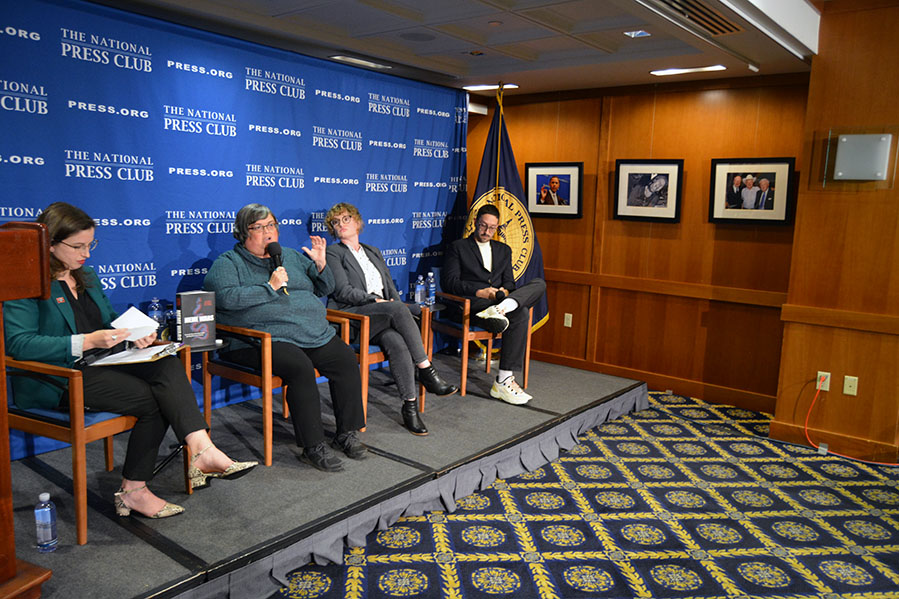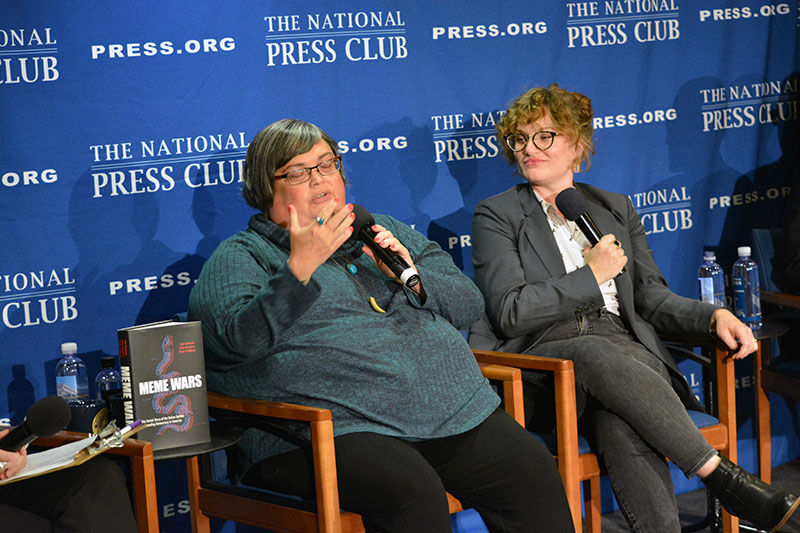"The stories that we wrote about the 'alt-right' at the time were colorful features about weirdos that were interesting that seemed like they'd probably be irrelevant once Hillary Clinton became president," Dreyfuss said.
When the stories didn't disappear, Dreyfuss said she learned how "that kind of energy online usually translates into the real world."
"I learned to have a lot more respect, in some ways, for some of the people who were behind some of these shenanigans," she said.
The "shenanigans" in question are right-wing political activities on the Internet and their real-world manifestations, specifically the January 2021 riot at the Capitol. The publisher describes Meme Wars as the story of how "the 'redpill right' weaponizes memes, pushing conspiracy theories and disinformation into the mainstream to drag people down the rabbit hole."


